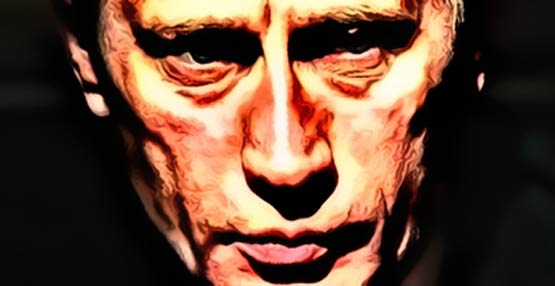
President Trump famously calls the probe a hoax, a label he uses liberally, but in this instance, it may literally be true.
We've spent years obsessing about Russian meddling in our politics, and now it turns out that the original FBI investigation into the Trump campaign that morphed into the Mueller probe may have been instigated, in part, by Russian disinformation.
In other words, the Kremlin may have succeeded in getting us to turn even more viciously against ourselves and conduct our politics in an atmosphere characterized by screaming headlines, dark insinuations and endless investigations — all by feeding a few lies to a private eye hired by the Hillary Clinton campaign to dig up dirt on Trump.
And the people who did the most to whip up this hysteria were the same ones who professed to be most alarmed at Russia meddling.
If this was the product of a deliberate Russian intelligence operation, it has to be judged one of the most audaciously clever of all time. The operative who first conceived of it deserves high honors, indeed, is a cinch to become a Hero of the Russian Federation.
A couple of footnotes in the report of Justice Department Inspector General Michael Horowitz into the conduct of the FBI investigation, released in December, have just been unredacted. They relate to the so-called Steele dossier compiled by former British spy Christopher Steele, who worked indirectly for the Clinton campaign.
One footnote says that the FBI received word of potential "Russian disinformation influencing Steele's election reporting." The FBI was told multiple times that information in the dossier was inaccurate. One warning said a subset of bad information was "part of a Russian disinformation campaign to denigrate US foreign relations," another that falsehoods were the work of Russian intelligence "infiltrat[ing] a source into the network" providing information.
A second unredacted footnote says that the FBI has information that an unnamed Steele source "had historical contact with persons and entities suspected of being linked to" Russian intelligence.
Trump critics have always pooh-poohed the dossier, but IG Horowitz has told Congress that the document was the basis of the illicit surveillance of former Trump campaign aide Carter Page.
How about another premise of the Russia investigation, the alleged information that Trump campaign aide George Papadopoulos had of the Russian hacking beforehand?
As my National Review colleague Andrew McCarthy has pointed out, this was always based on a will-o'-the-wisp. Supposedly, a Maltese academic (and alleged Russian spy) named Joseph Mifsud told Papadopoulos that the Russians had "dirt" on Hillary in the form of thousands of her emails. Not only is there no evidence that Mifsud was working for the Russians, he denied talking to Papadopoulos about Hillary's e-mail in a February 2017 interview with the FBI.
Now, the indispensable Catherine Herridge of CBS News has reported on a telling conversation between Papadopoulos and a FBI informant in October 2016.
Did Papadopoulos think anyone at the Trump campaign had anything to do with the hack, the informant asked? "No." Really? "No. I know that for a fact." How? Papadopoulos suggests he's been working with the campaign long enough that he'd know of any such operation. Could the campaign have done it undercover? "No, I don't think so. ... First of all, it's illegal." And no one would put his "life at risk of going to jail for the next 50 years to hack some bulls--t that may mean nothing."
If the FBI had seen the force in Papadopoulos' argument, it might have saved the country an immeasurable amount of grief. To the contrary, it didn't even see fit to include information from the conversation in the application to a court to surveil Carter Page.
In a better world, James Comey would apologize to the country for this travesty, providing a kind of bookend to the entire episode. That's not going to happen, though, and the Justice Department will have to continue to provide a public accounting of how it got this so wrong.
(COMMENT, BELOW)


 Contact The Editor
Contact The Editor
 Articles By This Author
Articles By This Author